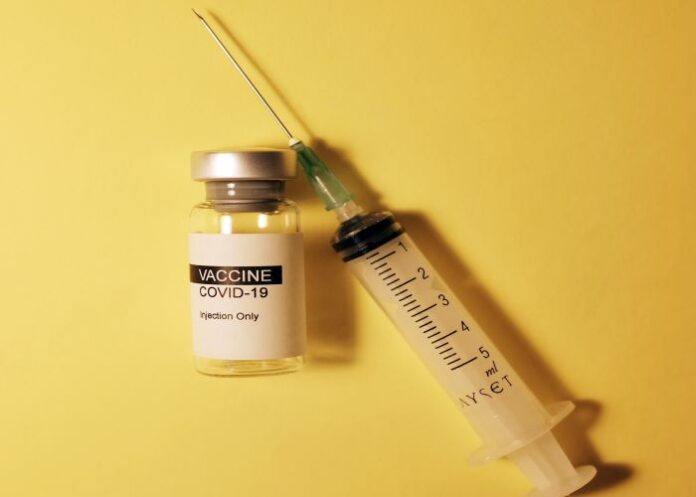A massive cohort study of 23.2m people across four Nordic countries showed higher rates of myocarditis and pericarditis within 28 days after being vaccinated with SARS-CoV-2 mRNA vaccines compared with being unvaccinated.
The researchers said the risks of myocarditis and pericarditis were highest within the first seven days of being vaccinated; were increased for all combinations of mRNA vaccines; and were more pronounced after the second dose. A second dose of mRNA-1273 (Moderna) had the highest risk of myocarditis and pericarditis, with young males aged 16 to 24 years having the highest risk.
Nordic countries have primarily used the two messenger RNA (mRNA) COVID vaccines (BNT162b2 – Pfizer – and mRNA-1273), which have been shown to be efficient and safe, although cases of myocarditis or pericarditis during the first weeks after vaccination have been reported.
Case reports, surveillance data and other reports from the US, Israel and Canada have indicated a higher risk of myocarditis after vaccination with SARS-CoV-2 mRNA vaccines, higher after the second dose, especially in younger men. Data from Canada and France indicate more cases of myocarditis after mRNA-1273 than after BNT162b2, but this remains to be elucidated.
In nationwide cohort studies in Denmark, Finland, Norway and Sweden, the study team evaluated the risks of myocarditis and pericarditis after SARS-CoV-2 vaccination in a combined population of 23.1m individuals. High-quality nationwide registers enabled them to evaluate the risk by vaccine product, vaccination dose number, sex and age.
The data are compatible with four to seven excess events within 28 days per 100 000 vaccinees after a second dose of BNT162b2, and nine to 28 excess events within 28 days per 100 000 vaccinees after a second dose of mRNA-1273, they reported in JAMA Cardiology.
The risk of myocarditis associated with vaccination against SARS-CoV-2 must be balanced against the benefits of these vaccines, they said.
Study details
SARS-CoV-2 Vaccination and Myocarditis in a Nordic Cohort Study of 23 Million Residents
Øystein Karlstad, Petteri Hovi, Anders Husby, et al
Published in JAMA Cardiology on 20 April 2022
Key Points
Question Is SARS-CoV-2 messenger RNA (mRNA) vaccination associated with risk of myocarditis?
Findings In a cohort study of 23.1m residents across 4 Nordic countries, risk of myocarditis after the first and second doses of SARS-CoV-2 mRNA vaccines was highest in young males aged 16 to 24 years after the second dose. For young males receiving 2 doses of the same vaccine, data were compatible with between 4 and 7 excess events in 28 days per 100 000 vaccinees after second-dose BNT162b2, and between 9 and 28 per 100 000 vaccinees after second-dose mRNA-1273.
Meaning The risk of myocarditis in this large cohort study was highest in young males after the second SARS-CoV-2 vaccine dose, and this risk should be balanced against the benefits of protecting against severe COVID-19 disease.
Abstract
Importance
Reports of myocarditis after SARS-CoV-2 messenger RNA (mRNA) vaccination have emerged.
Objective
To evaluate the risks of myocarditis and pericarditis following SARS-CoV-2 vaccination by vaccine product, vaccination dose number, sex, and age.
Design, Setting, and Participants
Four cohort studies were conducted according to a common protocol, and the results were combined using meta-analysis. Participants were 23 122 522 residents aged 12 years or older. They were followed up from December 27, 2020, until incident myocarditis or pericarditis, censoring, or study end (October 5, 2021). Data on SARS-CoV-2 vaccinations, hospital diagnoses of myocarditis or pericarditis, and covariates for the participants were obtained from linked nationwide health registers in Denmark, Finland, Norway, and Sweden.
Exposures
The 28-day risk periods after administration date of the first and second doses of a SARS-CoV-2 vaccine, including BNT162b2, mRNA-1273, and AZD1222 or combinations thereof. A homologous schedule was defined as receiving the same vaccine type for doses 1 and 2.
Main Outcomes and Measures
Incident outcome events were defined as the date of first inpatient hospital admission based on primary or secondary discharge diagnosis for myocarditis or pericarditis from December 27, 2020, onward. Secondary outcome was myocarditis or pericarditis combined from either inpatient or outpatient hospital care. Poisson regression yielded adjusted incidence rate ratios (IRRs) and excess rates with 95% CIs, comparing rates of myocarditis or pericarditis in the 28-day period following vaccination with rates among unvaccinated individuals.
Results
Among 23 122 522 Nordic residents (81% vaccinated by study end; 50.2% female), 1077 incident myocarditis events and 1149 incident pericarditis events were identified. Within the 28-day period, for males and females 12 years or older combined who received a homologous schedule, the second dose was associated with higher risk of myocarditis, with adjusted IRRs of 1.75 (95% CI, 1.43-2.14) for BNT162b2 and 6.57 (95% CI, 4.64-9.28) for mRNA-1273. Among males 16 to 24 years of age, adjusted IRRs were 5.31 (95% CI, 3.68-7.68) for a second dose of BNT162b2 and 13.83 (95% CI, 8.08-23.68) for a second dose of mRNA-1273, and numbers of excess events were 5.55 (95% CI, 3.70-7.39) events per 100 000 vaccinees after the second dose of BNT162b2 and 18.39 (9.05-27.72) events per 100 000 vaccinees after the second dose of mRNA-1273. Estimates for pericarditis were similar.
Conclusions and Relevance
Results of this large cohort study indicated that both first and second doses of mRNA vaccines were associated with increased risk of myocarditis and pericarditis. For individuals receiving two doses of the same vaccine, risk of myocarditis was highest among young males (aged 16-24 years) after the second dose. These findings are compatible with between four and seven excess events in 28 days per 100,000 vaccinees after BNT162b2, and between 9 and 28 excess events per 100,000 vaccinees after mRNA-1273. This risk should be balanced against the benefits of protecting against severe COVID-19 disease.
See more from MedicalBrief archives:
Novavax COVID jab gets US nod, despite myocarditis concerns
mRNA vaccines may pose acute coronary syndrome risk — US study
Pfizer vaccination linked to 3x high risk of myocarditis — Israel study
CDC investigates ‘relatively few’ reports of myocarditis from Pfizer vaccination

